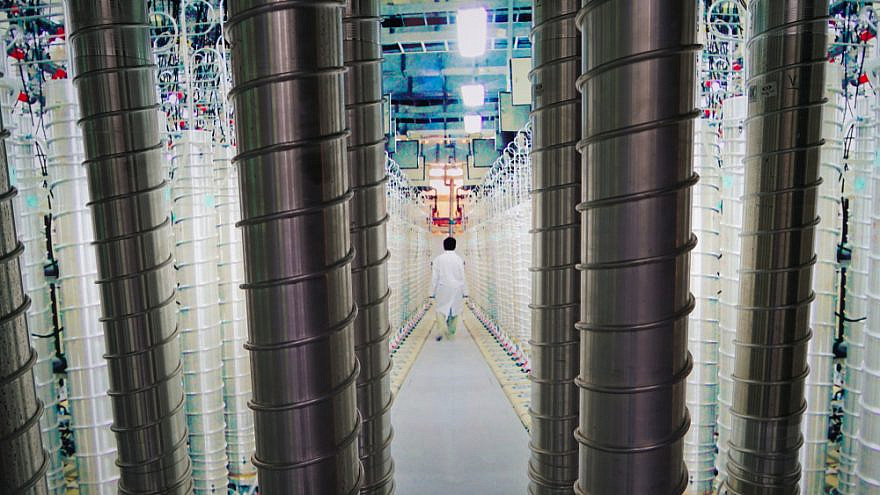Leading Israeli and American experts on Iran’s drive for nuclear weapons capability are calling for immediate sanctions on the clerical regime and opposition to a renewed concessionary atomic accord with the Islamic Republic.
The recent diplomatic rapprochement between Tehran and Saudi Arabia may prove a shot in the arm to efforts to revive the Joint Comprehensive Plan of Action (JCPOA)—the formal name of the 2015 Iran nuclear deal.
Brig. Gen. (res.) Amir Avivi, founder and chairman of the Israel Defense and Security Forum (IDSF), told JNS that “the Iran-Saudi deal could pave the way for Iran to [return to] the ill-devised JCPOA, which in the end would provide Iran with a legal way to obtain nuclear weapons. Israel cannot let that happen and will take the necessary measures to defend itself, hopefully with the full support of the U.S. and the rest of the free world.
“For Israel, any strengthening of Iran is a threat to our security, since the Islamic Republic of Iran is committed to Israel’s destruction,” Avivi added.
Tehran is now an easy 6 percentage points away from the 90% mark designated as “military grade” that is needed for nuclear warheads, experts say.
The decline of America‘s deterrence has grabbed renewed headlines since the rekindling of Tehran-Riyadh relations.
Avivi said, “Last week’s news of a China-brokered rapprochement deal between Iran and Saudi Arabia should serve as a glaring warning to U.S. foreign policymakers regarding the global and regional standing of the U.S.”
Despite the Iranian progress in uranium enrichment, the U.S. and the other world powers (Britain, France, Germany, China and Russia) remain wedded to the idea of a nuclear accord with Tehran.
Acting as Iran’s lawyer
Michael Rubin, an Iran expert at the American Enterprise Institute, told JNS that “Washington bureaucrats and pundits need to stop counting trees while being blind to the forest. Nor should they make ever-more irrational arguments as they become so invested in a bad nuclear deal that they end up acting as Iran’s lawyer.”
Rubin, who has written extensively about Iranian regime diplomacy and its reported atomic weapons program, added, “The simple fact is that Iran justifies its nuclear program in a desire for civilian energy generation. That requires enrichment to 5%. Anything more suggests Tehran has a weapons program. What is going on now is North Korea-like nuclear extortion.”
Saeed Ghasseminejad, an Iran expert for the Foundation for Defense of Democracies, said revival of the JCPOA “would allow Tehran to access up to $275 billion in financial benefits during its first year in effect and $1 trillion by 2030.”
Jason Brodsky, the policy director of the U.S.-based United Against a Nuclear Iran (UANI), told JNS that “Iran continues to test international red lines to see what it can get away with in advancing its nuclear program.
“Tehran has still not provided a sufficient explanation of the [84%-enriched uranium] particles, although the IAEA director-general maintains there has been no accumulation or production. Nevertheless, this shows the absence of deterrence on the nuclear file,” Brodsky continued.
“Iran has advanced its program to such an extent because it has not paid a price yet. It is time for the U.S. and Europe to reset that calculus by holding it accountable. They can start by snapping back sanctions at the U.N. Security Council,” he added.
“The process to revive the JCPOA has been dead for a long time. That is because of a confluence of factors—namely the internal political situation in Iran and its supply of arms to Russia for use against Ukraine. This is why there is a pressing need for the U.S. and its allies to outline a new Iran policy,” Brodsky said.


























